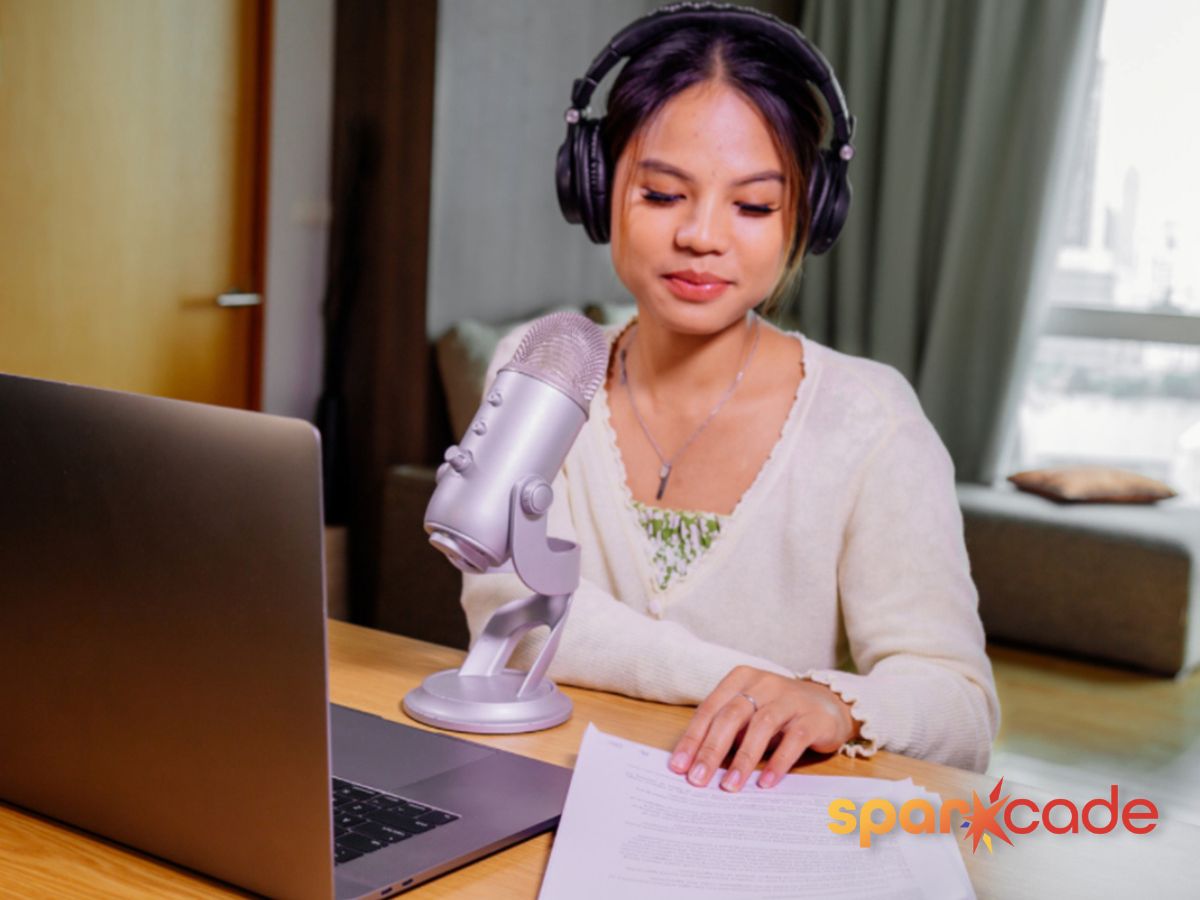There are now more than 850,000 podcasts out there, with 39% of the U.S. population listening to podcasts monthly. That’s a lot of listeners. Now, we assume you’re here because you’ve been booked as a podcast guest … and no matter how many people listen to the show you’re going on, you want to make sure you sound like you know what you’re doing.
As podcasters ourselves, we’re glad to see you’re doing your research. And we’ve got five tips for you that can help ensure you’re a great podcast guest.
1. Listen to the Show in Advance
Whether you’ve been contacted about going on the podcast, or you reached out to get booked, listening to a few episodes of the show will do a lot of good. Not only can you get a feel for the purpose of the podcast itself, but you’ll also learn about the host(s), their personalities, and the overall podcast flow.
Every podcast is different, but many have recurring segments that are used in every episode. It could be a game or a question, and as the guest, you’ll likely be expected to participate. Listening to a few episodes can help you make sure you’re ready to take part in the fun.
2. Be Generally Prepared
Listening to an episode or two of the show before going on as a guest isn’t the only way you can be prepared. Some podcasts may provide you with a rough script of the show before you’re on, which can help remove the element of surprise going into the show. You can always ask the hosts or producer for that, too. Even if they don’t normally provide it, they may be able to put it together for you on request.
And if you’re lucky enough to get a show outline … make sure you actually read it! 🙂
There are plenty of other steps you can take on the preparation front. Writing a bio for the hosts is often helpful, as they’ll be able to introduce you without having to dig through your LinkedIn. Plus, no one knows you better than you do, so you get to highlight the most important parts of yourself and/or your work.
Also, think about your CTA (Call to Action) that you’ll want to leave the podcast listeners with. What is the point of having you on the show? What is the audience supposed to do with the information they get from you? Keeping this in mind when going into the podcast can help you stay on track.
3. Consider Your Environment
Podcasts are recorded in all sorts of ways. If you’re on a local or regional show, you may record in person. Depending on the show and the host, they may have the perfect setup all ready for you, equipment, microphones, and all.
Especially during the pandemic, more shows are turning toward remote recording. The show will likely give you instructions about any apps or software they’d like you to download. Beyond that, if you aren’t a podcast pro yourself, you may not have the equipment you need in your home office. But even if that’s the case, there are a few steps you can take to ensure that you have the best audio possible on your side.
Be sure you’re somewhere quiet, where you won’t be interrupted by the kids or pets. Keep in mind other types of background noise, such as a humming air conditioner. And definitely minimize any distractions, such as cell phones. Nothing can kill a podcast like bad audio.
(And here’s one more way you can be prepared on the audio front … test your setup before going live. Your podcast hosts and producers will thank you.)
4. Provide Value
Ultimately, you were invited as a guest on a podcast because the hosts and/or producers feel that you have some sort of value to provide their listeners. Listeners aren’t interested in hearing you shamelessly plug your own business, product, or service. In fact, the hosts of the podcast will likely share information about who you are and what you do — so the listeners will get that information, regardless. And they’ll likely trust it more coming from the hosts anyway.
You’re not there to promote yourself; you’re there to provide value. What are the listeners looking to get out of this episode? Before going on the show, consider writing profiles of a few “typical” listeners. This may help you understand their intentions for listening.
Then, when answering questions on the show, you can target your advice to this audience in the hopes of making a genuine connection with them.
5. Don’t Talk Too Much
According to PodNews, the average length of a podcast is 37 minutes. Of course, every show varies; checking out the podcast in advance can also help you get a good idea of how long a typical episode lasts.
The hosts likely have specific questions they’re planning on asking you, but what happens if you start giving long-winded answers from the very beginning? The pacing of the show may get off track, and it might be hard for it to recover.
When answering questions, be sure you’re truly answering the question. But also, don’t keep talking just for the sake of it. Giving shorter — but complete — answers leaves room for the hosts to ask any follow up questions that occur to them naturally, lending more authenticity to the conversation.
We’re Your Friendly Neighborhood Podcast Experts
Now that you’ve been a podcast guest, maybe you’re thinking to yourself … I should do this, too! Whether you’ve already decided to start a podcast, or you’re considering the idea, we’re here to help. Download our free podcast checklist.
Let’s start growing your brand. Are you ready?


Leave A Comment